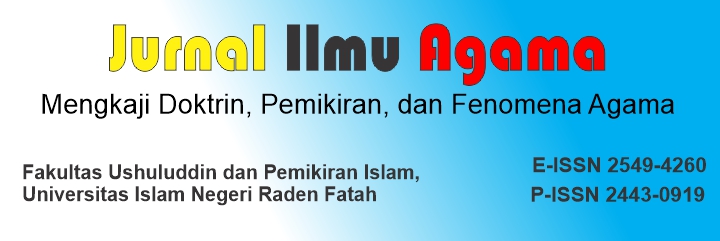PENGARUH POLA PIKIR JABARIYAH DALAM KEHIDUPAN SEHARI-HARI
Main Article Content
Abstract
The creed of extremeJabariyah is considered heretical. Their leader were Ja`d bin Dirham
and Jahm Ibn Safwan. Errors of it thougt can be seen from its teachings. It teaches that man was
forced into everything (Jabara). Humans do not have the freedom, and free will. All that is done of
human is because of compulsion. They blame God for all the sins they have committed. The error
of its thought stems from the idea that man is an inanimate object. Like a puppet which is only
driven by the puppeteer. Whatever man’s done is masterminded by the puppet. The theology of this
religious group is known as fatalism. Jabariyah extreme”s mindset makes its adherents become
lazy. In addition, they are also passive and see theirself unable to do anything. They have lost before
the match and died before the war.
and Jahm Ibn Safwan. Errors of it thougt can be seen from its teachings. It teaches that man was
forced into everything (Jabara). Humans do not have the freedom, and free will. All that is done of
human is because of compulsion. They blame God for all the sins they have committed. The error
of its thought stems from the idea that man is an inanimate object. Like a puppet which is only
driven by the puppeteer. Whatever man’s done is masterminded by the puppet. The theology of this
religious group is known as fatalism. Jabariyah extreme”s mindset makes its adherents become
lazy. In addition, they are also passive and see theirself unable to do anything. They have lost before
the match and died before the war.
Article Details
How to Cite
Murtiningsih, Murtiningsih. “PENGARUH POLA PIKIR JABARIYAH DALAM KEHIDUPAN SEHARI-HARI”. Jurnal Ilmu Agama: Mengkaji Doktrin, Pemikiran, dan Fenomena Agama 17, no. 2 (January 24, 2017): 193–204. Accessed March 5, 2026. https://jurnal.radenfatah.ac.id/index.php/JIA/article/view/1083.
Section
Artikel
Authors who publish with this journal agree to the following terms:
- Authors retain copyright and grant the journal right of first publication with the work simultaneously licensed under a Creative Commons Attribution 4.0 International License that allows others to share the work with an acknowledgement of the work's authorship and initial publication in this journal.
- Authors are able to enter into separate, additional contractual arrangements for the non-exclusive distribution of the journal's published version of the work (e.g., post it to an institutional repository or publish it in a book), with an acknowledgement of its initial publication in this journal.
- Authors are permitted and encouraged to post their work online (e.g., in institutional repositories or on their website) prior to and during the submission process, as it can lead to productive exchanges, as well as earlier and greater citation of published work.
How to Cite
Murtiningsih, Murtiningsih. “PENGARUH POLA PIKIR JABARIYAH DALAM KEHIDUPAN SEHARI-HARI”. Jurnal Ilmu Agama: Mengkaji Doktrin, Pemikiran, dan Fenomena Agama 17, no. 2 (January 24, 2017): 193–204. Accessed March 5, 2026. https://jurnal.radenfatah.ac.id/index.php/JIA/article/view/1083.

